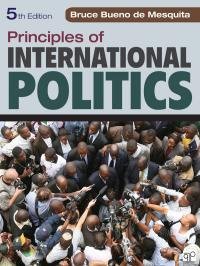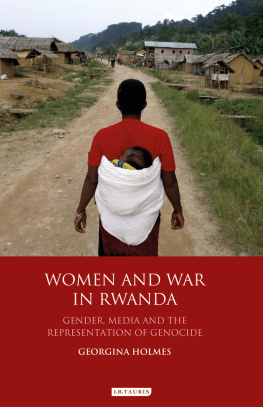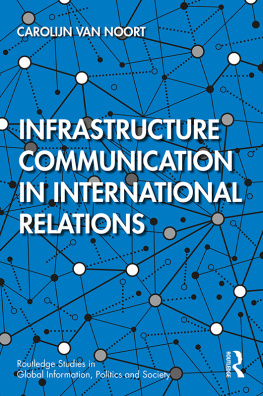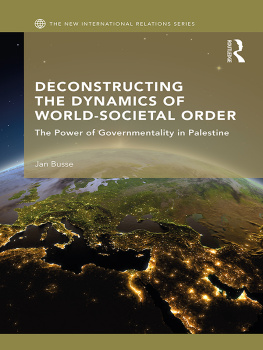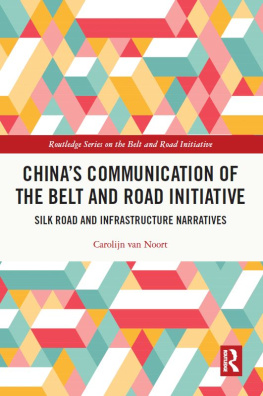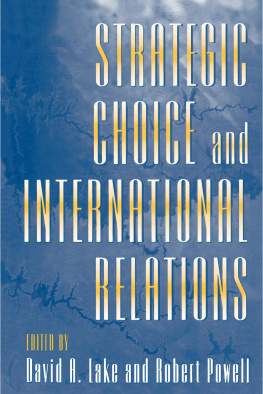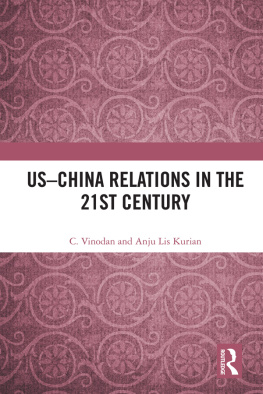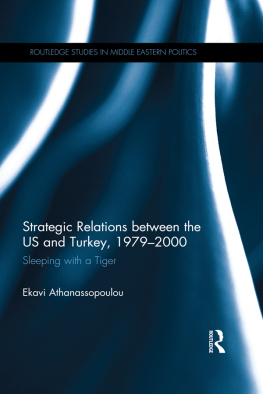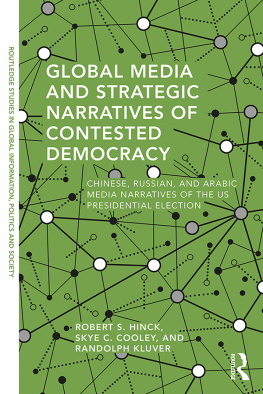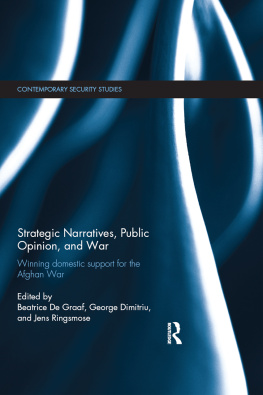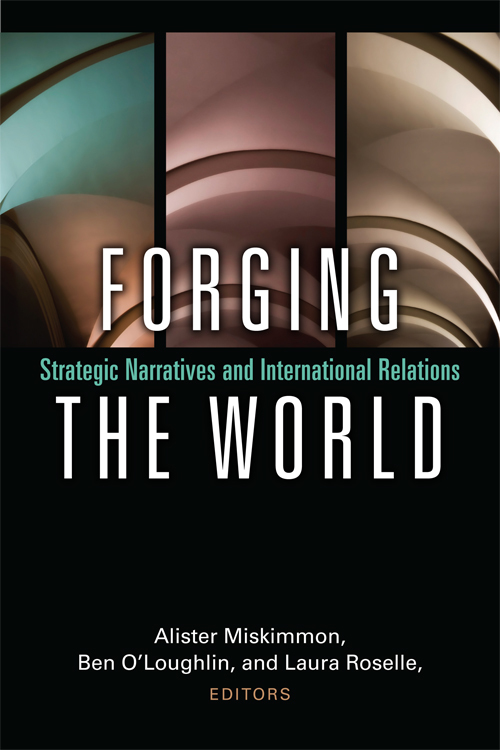
Forging the World
Forging the World: Strategic Narratives and International Relations brings together leading scholars in International Relations (IR) and Communication Studies to investigate how, when, and why strategic narratives shape the structure, politics, and policies of the global system. Put simply, strategic narratives are tools that political actors employ to promote their interests, values, and aspirations for the international order by managing expectations and altering the discursive environment. These narratives define who we are and what kind of world order we want.
The first part of the book lays out the theoretical framework for the use of narratives in global politics and addresses methodological and ethical issues raised by the study of strategic narratives. The volume then proceeds with case study chapters on the European Unions narrative of integration, U.S.-Russian narratives about the postCold War global system, Chinas foreign policy narrative, narratives of international development, narratives surrounding the Arab Awakening, the narratives and counternarratives advanced by al Qaeda and the players in the War on Terror, and the role of narratives in managing crises and constructing global order. The book concludes with a discussion of conceptual and methodological insights and points to areas for future research.
Alister Miskimmon is Reader in European Politics and International Relations and Co-Director of the Centre for European Politics at Royal Holloway, University of London.
Ben OLoughlin is Professor of International Relations and Co-Director of the New Political Communication Unit at Royal Holloway, University of London.
Laura Roselle is Professor of Political Science and International Studies at Elon University and Visiting Professor of Public Policy, DeWitt Wallace Center for Media&Democracy, Duke University.
Forging the World
Strategic Narratives and International Relations
Edited by Alister Miskimmon, Ben OLoughlin, and Laura Roselle
University of Michigan Press
Ann Arbor
Copyright by the University of Michigan 2017
All rights reserved
This book may not be reproduced, in whole or in part, including illustrations, in any form (beyond that copying permitted by Sections 107 and 108 of the U.S. Copyright Law and except by reviewers for the public press), without written permission from the publisher.
Published in the United States of America by the
University of Michigan Press
Manufactured in the United States of America
A CIP catalog record for this book is available from the British Library.
Library of Congress Cataloging-in-Publication Data
Names: Miskimmon, Alister, editor. | OLoughlin, Ben, 1976 editor. | Roselle, Laura, editor.
Title: Forging the world : strategic narratives and international relations / edited by Alister Miskimmon, Ben OLoughlin, and Laura Roselle.
Description: Ann Arbor : University of Michigan Press, [2017] | Includes bibliographical references and index.
Identifiers: LCCN 2016040292| ISBN 9780472130214 (hardcover : acid-free paper) | ISBN 9780472122509 (e-book)
Subjects: LCSH: International relations. | Communication in politics. | Persuasion (Psychology)
Classification: LCC JZ1242 .F68 2017 | DDC 327dc23
LC record available at https://lccn.loc.gov/2016040292
Contents
This book has emerged out of a dialogue with colleagues working in the fields of International Relations and Political Communication to better understand how persuasion works in international affairs. It builds on our 2013 monograph, Strategic Narratives, which sought to conceptualize the impact of the new media ecology on how political actors seek to influence others. Communication is a vital, and much underexplored, aspect of the study of International Relations. We hope this collection of essays by leading scholars working at the intersection of International Relations and Political Communication will encourage greater discussion about the challenges and opportunities faced by those trying to influence world politics today. We also hope that the broad range of topics covered in the books chapters will interest the policy-making community, by illustrating how narratives, strategically deployed, are a common feature of international affairs. We hope it will aid policymakers understanding of political communication as they grapple with working within the constraints and opportunities of the new media ecology in their careers. We believe the concept of strategic narrative has great potential to explain why actors are sometimes able, or unable, to get third parties to do as they wish.
The value and significance of this volume is threefold. First, the chapters show the durability of the strategic narrative concept. They demonstrate how the stages of narrative formation, narrative projection, and narrative reception are intertwined and often lead to unexpected outcomes. We illustrate how policy narratives, narratives about the identity of political actors, and narratives about the international system itself operate together across a range of case studies. Second, the volume illustrates the inclusivity of the strategic narrative approach. Authors explore different points on a spectrum of approaches to persuasion, enriching our understanding of how influence works. Third, the volume shows the potential of the strategic narrative approach. All the contributing authors added ideas beyond what we the editors expected and developed aspects of our original framework in different ways.
Why narratives? Storytelling is something that unites all corners of the globe. It is central to how we understand our history and our future, and how we organize the complexity of our political, economic, and social relations in a comprehensible, manageable way. Strategic narratives are sense-making devices deployed by political actors, designed to capture the political center ground, to shape our understanding of policies and emerging events. Strategic narratives can forge shared meanings. Former Australian prime minister Kevin Rudd suggests that a common strategic narrative between [China and the United States] could act as an organizing principle that reduces strategic drift, and encourages other more cooperative behaviors over time.
Understanding the narratives of political opponents can inform negotiation in areas where potential cooperation is achievable, and, indeed, areas of weakness can be exploited. The negotiations between the P5+1 and Iran over the past decade have demonstrated the material impact of narrative contestation between opposing actors. Diplomacy, both public and private and over many years, has allowed leaders to forge a collective narrative on Irans nuclear technological capabilities. At the conclusion of negotiations in July 2015 President Barack Obama suggested that knowing and understanding Irans narrative was an important aspect of finding an agreement with a hitherto sworn enemy. In a New York Times interview, President Obama stated:
[E]ven with your enemies, even with your adversaries, I do think that you have to have the capacity to put yourself occasionally in their shoes, and if you look at Iranian history, the fact is that we had some involvement with overthrowing a democratically elected regime in Iran. We have had in the past supported Saddam Hussein when we know he used chemical weapons in the war between Iran and Iraq, and so, as a consequence, they have their own security concerns, their own narrative. It may not be one we agree with. It in no way rationalizes the kinds of sponsorship from terrorism or destabilizing activities that they engage in, but I think that when we are able to see their country and their culture in specific terms, historical
Next page

